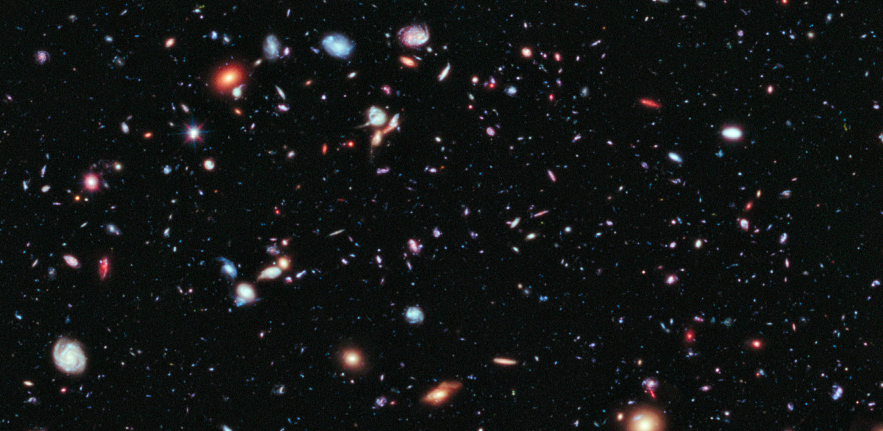
Submitted by Dr C.M. Martin-Jones on Tue, 20/04/2021 - 10:29
The University of Cambridge is creating a new research initiative, bringing together physicists, chemists, biologists, earth scientists and mathematicians to answer fundamental questions on the origin and nature of life in the Universe.
Led by 2019 Physics Nobel Laureate Professor Didier Queloz, the Cambridge Initiative for Planetary Science and Life in the Universe will be the driving force for the development of a new research community investigating life in the Universe, from understanding how it emerged on Earth to examining the processes that could make other planets suitable for life.
Scientists from the Department of Earth Sciences will play a key role in the initiative, working alongside researchers from across the School of the Physical Sciences, the Cavendish Laboratory (Department of Physics), the Department of Chemistry, the Department of Applied Mathematics and Theoretical Physics and the Institute of Astronomy.
The initiative comes at a crucial moment in science when scientists are able to study exoplanets – planets orbiting stars other than our Sun – in ever-greater detail, and outstanding progress is being made in “prebiotic” chemistry: carefully-regulated laboratory experiments to recreate the conditions when life first formed on Earth.
This also coincides with the recent landing of the Mars 2020 Perseverance Rover - which has set in motion one of the greatest international scientific endeavours of recent decades. Within the next ten years, samples returned from a four-billion-year-old lake on Mars will offer a unique window on the Solar System as it was when life originated on Earth, and could provide evidence of ancient life on the Red Planet.
Building on the University’s research excellence and enhancing the multidisciplinary research conducted in various departments of the School of the Physical Sciences, the focus of the research within the new Initiative will be to understand the origins and physical properties of planets throughout the Universe, as well as the chemical and biological processes capable of starting and sustaining life.
“We are delighted to be part of this exciting new initiative, which signals our commitment to making the Department of Earth Sciences a centre for research and teaching in planetary science” said Professor Richard Harrison, Head of Department at Cambridge Earth Sciences.
“We look forward to exciting new collaborations with our colleagues in physics, chemistry, astronomy and mathematics: tackling some of humanity's most fundamental questions about planetary systems in our solar system and beyond.”
Earth Sciences is on the brink of a revolution -- of being able to study not only our home planet: but the workings and life-support systems of thousands of other planets in the nearby galaxy.
“This is an opportunity to tackle some of the biggest questions in the geosciences: How do planet’s maintain a stable climate? How common is life? And to look back into Earth’s past, with exoplanets trapped in permanent magma ocean conditions, and to its future at planets around dying stars”, said Dr Oliver Shorttle, joint lecturer at the Department of Earth Sciences and Institute of Astronomy, whose research investigates the chemical and dynamic processes occurring in planetary interiors and crusts.
The coming decade will see an explosion of new information on exoplanets and their atmospheres: with the launch of new orbiting and ground-based telescopes, as well as a key milestone in understanding life beyond Earth: the return of the first rocks from Mars. Nicholas Tosca, professor in geochemistry at the Department of Earth Sciences, is a member of the core science team for the Mars 2020 and will be reconstructing past environmental conditions on the Red Planet.
According to Tosca, “This initiative provides the interdisciplinary framework that can place these generation-defining observations in context. By breaking down traditional barriers between science and humanities disciplines, scholars at Cambridge will be able to work closely and creatively together and address the key question of our own origins on Earth, and our place in the Universe”
“By bringing together chemists, geologists, biologists, and astrophysicists to work together toward a common goal, the Initiative will ensure we truly exploit the full potential of this exciting new field of research, bringing us closer to understanding life in the Universe and finding life beyond Earth,” said Queloz, from Cambridge’s Cavendish Laboratory and Director of the Initiative.
The School of the Physical Sciences and its various departments recently committed to an initial funding package that will support the Initiative as it builds the foundations of its vision and will create the conditions for its research and educational ambitions to grow and develop.
Professor Nigel Peake, Head of the School of the Physical Sciences, said: “During the last decades our understanding of the microbiology of life has made spectacular progress, but knowledge on origins of life on Earth, and more generally in the Universe, are still nascent. This is about to change. I am proud that Cambridge is leading the way to a radically new approach based on a convergence of recent results in astrophysics, planetology and molecular chemistry.
“With the Cambridge Initiative for Planetary Science and Life in the Universe, we will provide the infrastructure that will allow scholars from various disciplines to combine their interests to address the fundamental question of our origins in the Universe. This sets the scene for a revolution to come.”
For more information, news and updates about the Cambridge Initiative for Planetary Science and Life in the Universe, visit www.iplu.phy.cam.ac.uk.
